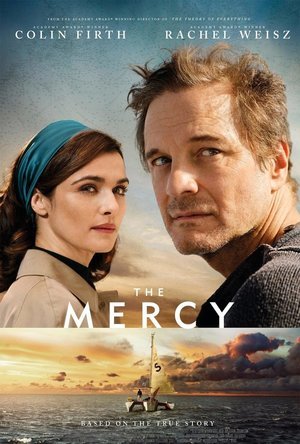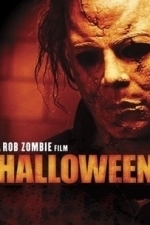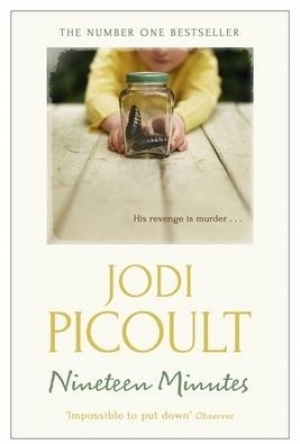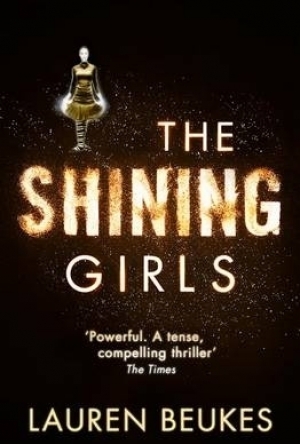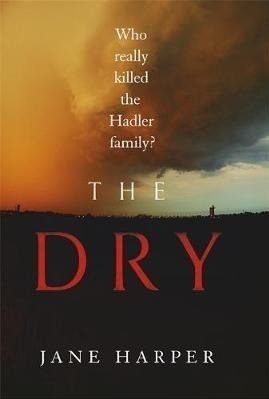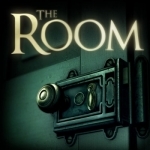
The Room
Games
App
Welcome to The Room, a physical puzzler, wrapped in a mystery game, inside a beautifully tactile 3D...
The room Puzzle Puzzler Atmospheric Clever games

Awesome Shape Puzzles 123
Games and Education
App
- Let learning become your children's favourite pastime with this fun shape puzzle game that doubles...

Phoenix Wright: Ace Attorney - Spirit of Justice
Games and Entertainment
App
************************************************ ※IMPORTANT※ ・Please read the “When...

Homer - Kids Learn to Read App
Education and Entertainment
App
Welcome to Homer — the #1 learn to read program for kids ages 2-8, shown to increase early reading...

First Phrases HD
Education and Games
App
From SmartAppsforKids.com: "In my opinion, the full version is a must-have for parents of children...
Bob Mann (459 KP) rated The Mercy (2018) in Movies
Sep 29, 2021
Lending him the money, under onerous terms, are local businessman Mr Best (Ken Stott, “The Hobbit“) and local newspaper editor Rodney Hallworth (David Thewlis, “Wonder Woman“, “The Theory of Everything“). With the race deadline upon him, Crowhurst is pressed into sailing away from his beloved wife Clare (Rachel Weisz, “Denial“, “The Lobster“) and young family in a trimaran that is well below par.
But what happens next is so ludicrous that it makes a mockery of whoever wrote this ridiculous work of fiction. Ah… but wait a minute… it’s a true story!
It is in fact such an astonishing story that this is a film that is easy to spoil in a review, a fact that seems to have passed many newspaper reviewers by (Arrrggghhh!!). So I will leave much comment to a “spoiler section” that follows the trailer (which is also best avoided). This is honestly a film worth seeing cold. What can I say that is spoiler-free then?
Firth and Weisz make a well-matched couple, and the rest of the cast is peppered with well-known faces from British film and (particularly) TV: Andrew Buchan and Jonathan Bailey (from “Broadchurch”); Mark Gatiss (“Sherlock”, “Out Kind of Traitor“); Adrian Schiller (“Victoria”; “Beauty and the Beast“).
The first part of the film is well executed and excellent value for older viewers. 60’s Devon is warm, bucolic and nostalgic. In fact, the film beautifully creates the late 60’s of my childhood, from the boxy hardwood furniture of the Crowhurst’s house to the Meccano set opened at Christmas time.
Once afloat though, the film is less successful at getting its sea-legs. The story is riveting, but quite a number of the scenes raise more questions than they answer. As stress takes hold it is perhaps not surprising that there are a few fantastical flights of movie fancy. But some specific elements in Scott Burns’ script don’t quite gel: a brass clock overboard is a case in point. What? Why?
And it seems to be light on the fallout from the race: there is a weighty scene in the trailer between Best and Hallworth that (unless I dozed off!) I don’t think appeared in the final cut, and I think was needed.
All in all, I was left feeling mildly dissatisfied: a potentially good film by “Theory of Everything” director James Marsh that rather goes off the rails in the final stretch.
This was a time where morality and honour were often rigidly adhered to – British “stiff upper lip” and all that – and seemed to carry a lot more weight than they do today. So some of the decisions in the film might mystify younger viewers. But for the packed older audience in my showing (Cineworld: this needs to be put on in a bigger screen!) then it was a gripping, stressful, but far from flawless watch.
I’d also like to take this opportunity to pay my respects to the film’s composer Jóhann Jóhannsson, who shockingly died last week at the ridiculously young age of 48. His strange and atmospheric music for films including “The Theory of Everything“, “Sicario” and (particularly) “Arrival” set him on the path to be a film composing great of the future. Like James Horner, another awful and untimely loss to the film music industry.
Chris Sawin (602 KP) rated Halloween (2007) in Movies
Jun 19, 2019 (Updated Jun 21, 2019)
There seems to be a huge debate amongst horror fans about whether this film was good or not. The results seemed to be pretty one-sided in favor of the original horror film from 1978, but now it seems the remake has almost just as many fans. I wouldn't say it was a 50/50 ratio, but 60/40 (60% of horror fans either hate the remake or prefer the original, 40% like the remake or prefer it over the original) seems about right these days. I managed to see the work print a few years ago and I wasn't impressed. With the release of Halloween 2 at the end of this month though, I promised myself I would give this film another shot. So that time has finally come and I can honestly say that the film isn't as bad as I remembered.
A few aspects of the film are actually quite good. Tyler Mane is a great Michael Myers. He's almost seven feet tall and is built like a giant. He's a total monster and the destruction and mayhem he causes is believable given his size. The adult version of Michael Myers is spot-on for a re-imagining of the film. Malcolm McDowell also does a good job as Dr. Loomis. He's no Donald Pleasance, but McDowell's take on the character isn't bad. Scout Taylor-Compton is also a worthy mention. She slips into the shoes of a modern day Laurie Strode rather flawlessly. Moving on from the acting though, the film is pretty solid from the time Michael gets his iconic mask through the finale. The way Michael made so many masks while he was in Smith's Grove was an interesting idea and the scene where you see his room fifteen years later with nothing but masks on every wall is one of the best in the film. The cinematography is also something that is often overlooked, which is a shame since it's actually pretty exceptional. It seemed to stand out most during the scenes where Michael was stalking Laurie, especially in the abandoned Myers house at the end. There's a scene right after Michael gets out of Smith's Grove where he goes to a truck stop and winds up getting the jumpsuit we're all familiar with. While there, he runs into Big Joe Grizzly in the bathroom stall and is banging Grizzly's hand, which is holding a knife, against the bathroom stall wall. As he's doing this though, the bathroom stall is just getting demolished but with every smashing blow, the camera violently shakes. The camera just always seemed to have a knack for giving a good perspective of what the character was going through, whether it was Michael or Laurie.
The disappointing part of this is pretty much everything leading up to Michael getting his mask back after his escape is pretty terrible. The dialogue, especially in the first ten to fifteen minutes of the film, is horrendous. Everything that's said between Deborah Myers and Ronnie White is just awful. The white trash upbringing just doesn't seem worthy for a horror icon like Michael Myers. It's just hard to believe that Michael Myers is the way he is because his mom was a stripper and his older sister was a whore. Logic seems to just be thrown by the way side as the film progresses. After Michael escapes from Smith's Grove, he returns to his old house where his mask and knife that he used to kill his family happen to just be lying under the floorboards. So did the police just pick up the bodies without searching the house or what? So he got his jumpsuit by stealing it from a guy taking a dump at a truck stop? Really? Hearing some of the original music return from John Carpenter's version of the film was a bit bittersweet. On one hand, it was great hearing it again. On the other, however, it just didn't seem to fit. Made me miss the original film more than anything. Giving Michael Myers a specific origin was probably Zombie's biggest mistake. The most terrifying thing about Michael Myers was that he was The Shape and had a bit of mystery to him. You knew he was going after Laurie, but other than that you had Loomis' word to fall back on. Michael was the human incarnation of pure evil. That's it. That's all you need. Humanizing the character and introducing us to his childhood only watered down the Michael Myers character.
There's a scene with Michael Myers and Dr. Loomis in Smith's Grove Sanitarium where Michael has made a mask that he's colored completely black. When Loomis asks him why it's black, Michael says that it's his favorite color. Loomis goes into an explanation about the color spectrum. Black is on one end and is the absence of color while white is at the opposite end and is every color. That's actually a great explanation of the differences between the original film and the remake. The original film would be the black segment of the spectrum. Carpenter's version leaves more to the viewer's imagination as the only explanation for Michael Myers is that he is "pure evil." While the remake would be the white segment of the spectrum as it goes into full detail why Michael Myers is the way he is and it shows every little violent and vulgar detail. Some people would say that having a little bit of mystery would be a good thing when it comes to a film like this while others like having everything laid out for them. It all depends on the viewer and which end of the spectrum they prefer. In my opinion though, that's the biggest mistake Rob Zombie made. There's no mystery left with the Michael Myers character. He's no longer The Shape, but is a psychopathic killer because he was raised by a white trash family, liked to torture animals, and whose sister didn't take him trick or treating.
The best thing Zombie can do is distance himself from the original film(s) as much as possible. To do something original with these characters. He looks like he'll do just that when Halloween 2 hits theaters on August 28th. One thing re-watching the remake accomplished was that it made me look forward to the sequel. The trailer looks really good (but to be fair, so did the trailer for the original film) and I was on the fence about it until I saw this again. The only problem I have is that Zombie seems to be telling the same story with the same initial cast with all of his films. House of 1,000 Corpses, The Devil's Rejects, and Halloween (first half of the film) are all way too similar. Zombie needs something new to add to his resume. Will Halloween 2 deliver that? Probably not, but a guy can hope.
Hazel (1853 KP) rated Nineteen Minutes in Books
May 25, 2017
Nineteen Minutes is perhaps Jodi Picoult’s most controversial novel, as well as one of the longest. Lots of things can happen in nineteen minutes including a school shooting resulting in the deaths of ten people. This is what happens at the beginning of this book, leaving hundreds of teachers and students emotionally scarred for the remainder of their lives. Picoult explores the reactions of a community who’s ideas of safety have been shattered, the grief of the victims and their families and, perhaps most importantly, the heartache of the parents of the shooter.
Seventeen-year-old Peter Houghton has had enough of the bullying that he has endured throughout his entire school life. He has no friends, is constantly miserable, possibly suicidal, and so, on a typical morning in March 2007 he decides permanently fix the situation, unthinking of the consequences. But why did he go to such extremes? What circumstances in his life led to firing a gun as the only solution?
As the evidence is gathered in the lead up to the court trial, many key characters question their own involvement in Peter’s life. Firstly there is Josie Cormier, a straight-A student who swapped her childhood friendship with Peter for popularity and her boyfriend Matt, a particularly aggressive bully. Secondly there is Alex Cormier, Josie’s mother, who destroyed her friendship with Peter’s mother after finding their five-year-old children playing with guns in the Houghton’s basement.
If Peter’s father had never owned a selection of hunting rifles, would Peter ever have thought of guns as a way out of his predicament? On the other hand, Lacy Houghton blames herself for not noticing how badly her son was suffering, not just at school, but at home as well, where he had to live up to the memory of his saint-like older brother who died in a car crash the previous year.
Naturally a tragic event such as this changes people, however not always in a negative way. Relationships begin to blossom as characters realize how close they were to losing the ones they love. Alex takes a step back from her demanding job to comfort Josie in the aftermath, thus feeling closer to her than she ever has done before. Alex, a single mother, also opens herself up to a romantic relationship, something she has had no time to seriously consider up until now.
All the while, Defense Attorney Jordan McAfee, who some readers may remember from Salem Falls, fights a losing battle to get Peter acquitted, by arguing and prying into Peter’s emotions to discover his reason for committing murder.
What I like about Picoult’s novels is that there is a lot more to it than a simple storyline. While the story plays out and plot twists happen, the reader is learning something new. In Nineteen Minutes Picoult provides insight into midwifery, psychology and economics – things that are not synonymous with the shootings.
Readers will constantly question whose side of the story they are on. Hundreds of people grow up being bullied and will understand how Peter was feeling; yet they would not pick up a gun. Likewise, by putting themselves in the shoes of the victims readers will think about how they would feel in the same situation. However would anyone be willing to admit that they made someone else’s life a living hell? There is no simple conclusion to Nineteen Minutes; someone will always lose. Nevertheless, Picoult’s fantastic writing skills provide an enthralling story of love and loss.
I cannot recommend this book to readers in general due to the nature of the themes found in the story. Gun crime and school shootings are sadly still an occurrence in the present time, particularly in America, therefore there are thousands of people who have been affected by such an event, whether directly or indirectly as part of a local community. Some readers may find Nineteen Minutes challenging and upsetting, which is why I am not going to encourage everyone to read this book. However, Picoult has excelled herself with this novel and it would be a shame for people not to read it. Fans will not be disappointed with her writing and will love all her characters, possibly even Peter!
Jamie (131 KP) rated The Shining Girls in Books
Jun 4, 2017
The story is a heavily character driven dive through recent American history, from the Great Depression in the 1930’s all the way up to the early 1990’s. I was impressed by the amount of research that was put into this book, each decade having enough detail to get a good feel for the era. Many of the characters were pretty well fleshed out for such short chapters, and I found myself liking many of them.
My favorite part of the story, though, was the tragedy that was Harper because of how very flawed and human he is. He views himself as commanding, charming, persuasive, but to many of his victims he’s just downright creepy. He thinks himself calculating yet he makes mistakes left and right. He has a drive to rise up from the trenches of poverty and starvation from his own era, to be powerful. His choice of victims are all women in a great act of femicide, because he has this dire need to feel masculine. He chooses women that he views as invincible, that shine with ambition in order to assert his dominance by snuffing them out. He thinks he has this divine purpose, a destiny to fulfill because he wants it so desperately, even though the reality is that it’s simply senseless violence with no real meaning. He obsesses over the murders, returning to the scene of the crimes over and over to get off. Harper is pathetic. It was a refreshing change from the stereotypical smooth, genius archetype that glorifies killers. I didn’t know right away that this book was meant to be a feminist novel, but that’s what I took away from not only Harper’s struggle with masculinity, but with the strong and fiercely independent female characters all throughout the book.
There were a couple of problems with the book, however, that I feel need to be addressed. The mash up of genres is both a good and bad aspect of the story. The middle chapters where romance comes into play to me was really distracting and feels out of place. The tagline describing the novel also states that “the girl who wouldn’t die hunts the killer who shouldn’t exist” but honestly, it didn’t feel much like Kirby was really hunting the killer. Looking for connections with other murder cases and investigating some wild hunches, yes, but really she spends most of the book developing her bond with Dan. I would have really liked for this to be more of a cat and mouse type of hunt between Kirby and Harper.
The chapters with Harper were much more interesting, but even those became a little repetitive. We as the reader follow Harper as he stalks his victims in childhood, waiting for the right time to strike when they reach adulthood. While it was necessary for the plot to detail the characters to both connect them to the greater chain of paradoxes and to show Harper’s descent, the violence is excessive and extremely detailed, and after a while it started to feel more like torture porn. It just got tiring after a while.
Despite its flaws, I thought this book was good, and I mean really good. I loved the way that the time paradoxes were handled, time travel stories tend to be tricky and usually end up with a couple of glaring loop holes. The loops are handled in a way that I found satisfying and this book is easily my favorite time travel novel I’ve ever read. It is truly unique and a story I won’t soon forget.
I have been hearing about THE DRY since before its release and wasn't sure it would live up to the hype, but I was wrong. I really, really enjoyed this novel and read it over the span of about 24 hours. My only regret about the entire experience was that it was over so quickly. This was an incredibly well-written, interesting, and intricately plotted novel that just flowed effortlessly. The story at its core is a dark one, and the town of Kiewarra is a sad and depressing place: the townspeople find it easy to believe Luke killed his family because everyone is down on their luck. The town is plagued by a horrible drought (hence the title), which spells certain doom for a community that makes it living primarily on farming. Luke and Karen had bought their farm from Luke's parents, and many think he killed himself because the farm couldn't remain profitable. Harper does an excellent job at portraying the people of Kiewarra--the small town town becomes almost another character in the novel. She does an excellent job of depicting depressed small town living.
In fact, I loved all the nuanced characters in THE DRY. You know when an author just captures her characters' voices perfectly? That was this book for me. Falk just slides effortlessly off the page, and I was completely taken with Sergeant Raco, as well. But you can also easily visualize all the people in Kiewarra that Aaron encounters. While the story primarily takes place in the present-day, we get key flashbacks to the past, when Luke and Aaron were teens, and they hung out with two other kids, Gretchen and Ellie. The slow buildup to a big event surrounding this foursome also creates incredible suspense, as both stories (what happened with Luke and family and what happened when all four were kids) unravel in parallel. It's remarkably well-done.
I enjoyed how the story kept me guessing the entire time, which isn't easy to do. Even when I had a decent inkling what happened with Luke, there was still so much I hadn't figured out. I was completely captivated by the story and frantically turning the pages to find out what had happened--both in the present and the past. I could see the setting, the people, and the town so clearly. The novel truly hooked me from the very beginning and never let me go.
I'm very excited to see that this might be a series featuring Aaron, as I really loved his character and Harper's writing. I read a lot of thrillers, but this one packaged everything together perfectly, and I highly recommend it. 4.5 stars.
<center><a href="http://justacatandabookatherside.blogspot.com/">Blog</a>; ~ <a href="https://twitter.com/mwcmoto">Twitter</a>; ~ <a href="https://www.facebook.com/justacatandabook/">Facebook</a>; ~ <a href="https://plus.google.com/u/0/+KristyHamiltonbooks">Google+</a></center>;
